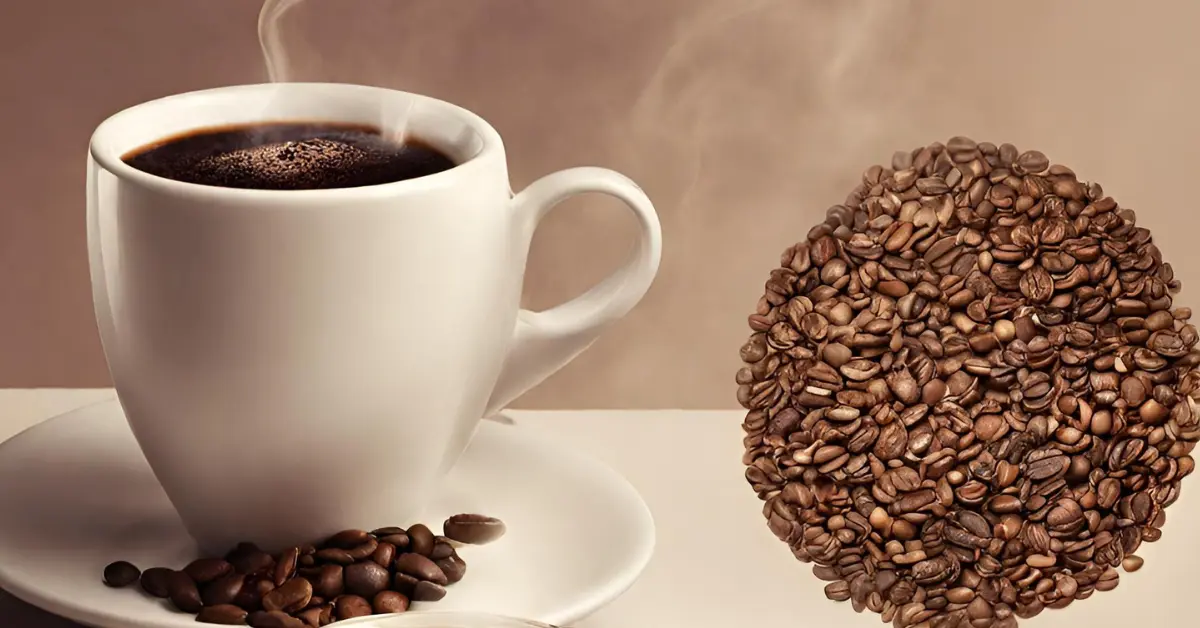
Equipment
Whether you are a coffee enthusiast or a tea person you might have this question come up to your mind. Which one is better: Tea or coffee? People who are a little bit biased over coffee may ask “Why is coffee better than tea?”. Whether you’re biased over tea or coffee, this blog here has the Ultimate goat debate. This is not the debate of Messi or Ronaldo. This is the debate between coffee and tea, and today we’re going to end it.
Coffee is better because it has 60-100 mg of caffeine per 8-ounce cup. Also, other elements that are better for the human body are not present in tea. Now if you want to know what else is there in coffee that makes it better than tea then stay tuned. Today we will discover the battle between two of the most popular soft drinks.
Amount of Caffeine

I think you already know what caffeine is. Still, let me clear it a little bit for you. What is Caffeine and how does Caffeine from coffee actually affect you? Caffeine is a chemical substance that is present in your coffee. When you drink coffee, this caffeine goes into your brain through the blood.
There is a substance called Adenosine that is responsible for you to feel sleepy and tired. What caffeine does is it replaces the receptors that were going to have Adenosine. So, caffeine replaces adenosine, making your body active, awake and alert. This is how caffeine actually works on your body.
Now all this is to just enlighten you about the main ingredient of coffee.
To decide “why is coffee better than tea?“, you should figure out the differences between them. The difference between tea and coffee mainly depends on the amount of caffeine. Coffee contains a significant amount of caffeine and tea contains less amount of caffeine.
Here is a difference chart between various types of coffee and tea.
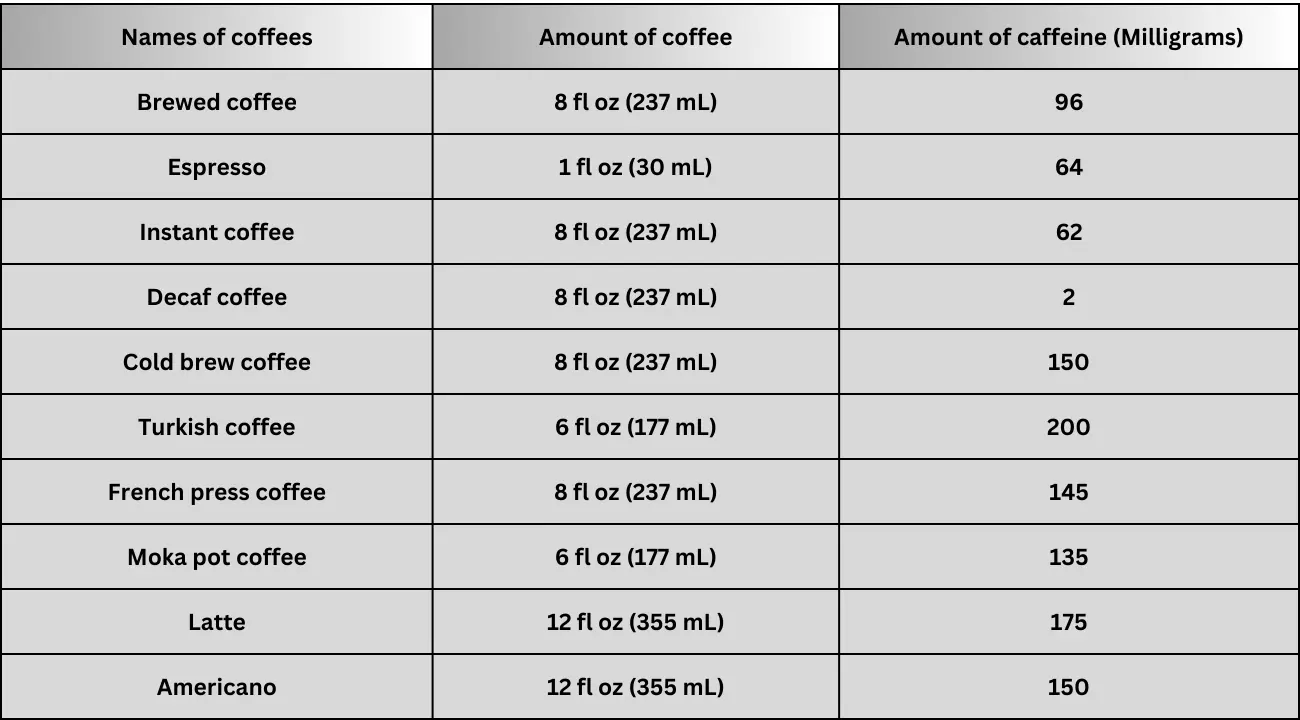
So, from these charts you can have an approximate idea about the amount of caffeine. So now you can calculate by yourself which one you need. However, a normal human should not take more than 400mg of caffeine a day. So, be cautious about the amount of caffeine that you are willing to take. Caffeine might give you a boost and alertness to work more for longer periods. But uncontrolled caffeine consumption may lead to serious insomnia and other related problems.
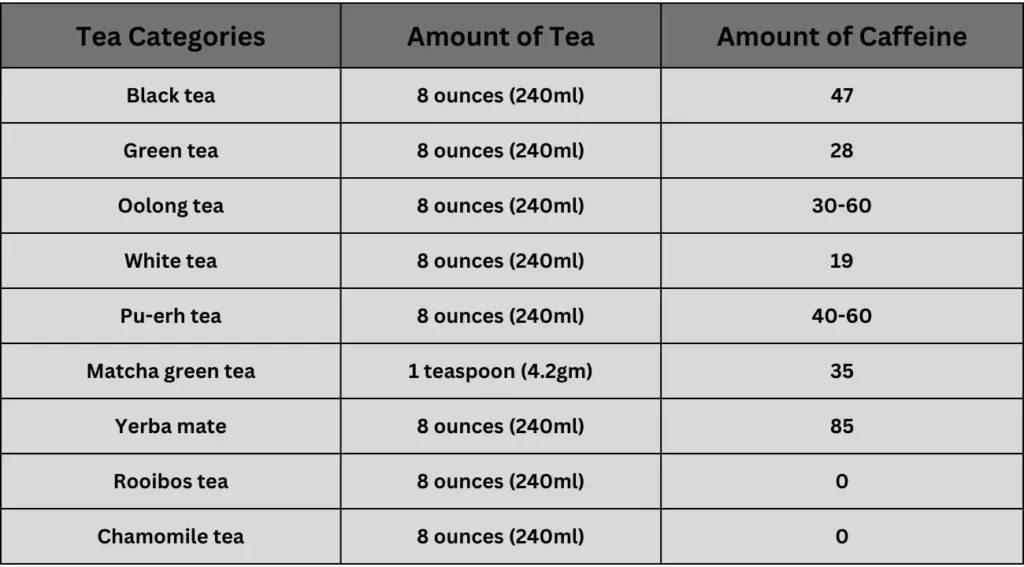
On the other hand, tea contains less caffeine and it gives a relaxing experience. Tea focuses more on internal health rather than instant boosts.
Preparation Method: Coffee vs tea
Source of processing
Coffee : Coffee beans come from the seeds of coffee berries. Then the beans are processed to get different types of coffee like Arabica, Robusta etc. Each of them provides different flavors.
Tea: Tea is made from the leaves of the Camellia sinensis plant. The leaves then had to go through a complex processing method. The method includes withering, rolling, oxidation and drying to produce various tea types. There is green, black, oolong, white tea etc.
Brewing technique
Coffee: Making coffee involves infusing ground coffee beans with hot water. To control the coffee’s strength and flavor, we adjust the extraction time, water temperature, and grind size.
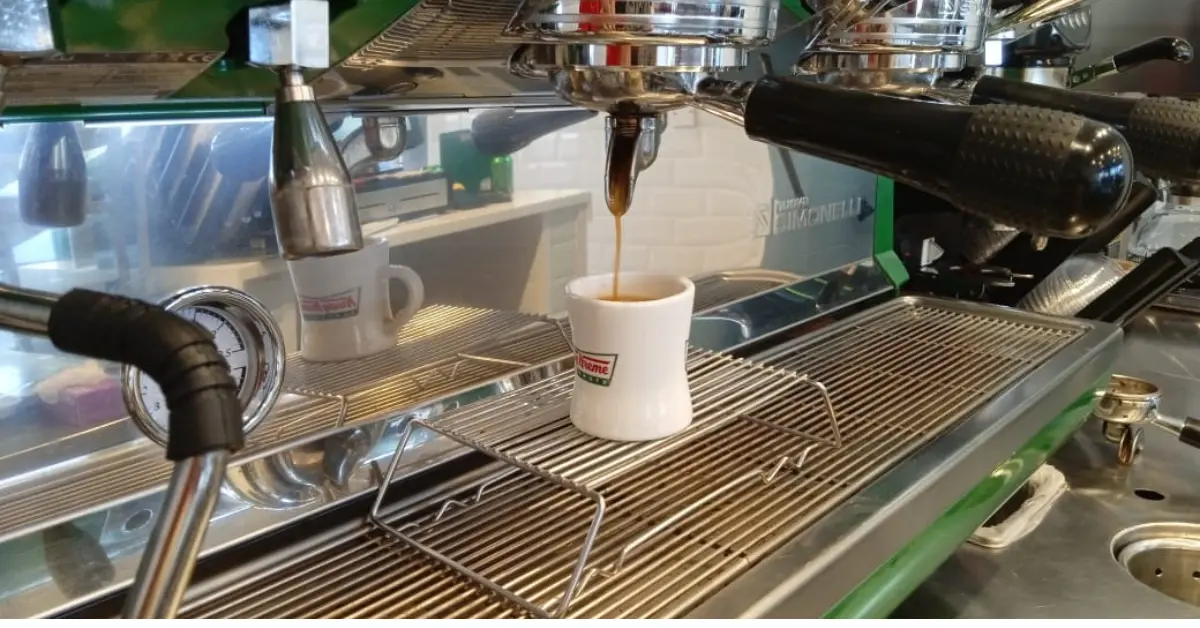
Tea: Brewing tea is simply steeping tea leaves in hot water for a specific time. The taste and aroma depend on the water temperature and steeping time, which vary based on the type of tea. So, whether it’s calming chamomile or bold black tea, each cup brings out its unique flavors for a delightful experience.
Infusion time
Coffee: Coffee usually requires a shorter infusion time compared to tea. The brewing process typically takes a few seconds to a few minutes.
Tea: Tea requires a relatively short steeping time, ranging from 1-5 minutes, depending on the type of tea. Soaking for too long can result in bitter and astringent flavors.
Equipment : Coffee requires equipment such as coffee makers, espresso machines, French presses, or pour-over devices for preparation.
Tea can be prepared using teapots, teacups, and tea strainers or infusers. For certain types of tea, specialized tea sets are used in traditional ceremonies.
Additions & Flavors
Coffee is often enjoyed with milk, cream, sugar, syrups, or various flavourings, offering a wide range of customization options.
Some tea drinkers add sweeteners, milk, or lemon to enhance the flavour. But it is not a common practice for all types of tea.
Health benefits
Now this may be the major reason for anyone’s choosing between coffee and tea or deciding why is coffee better than tea You all know, that health is wealth. So to keep health in good shape the choice is important, especially if you are a health-conscious person. Both tea and coffee contain antioxidants that will improve your immunity. However, let’s see which one contains what type of health benefits.
Tea and coffee are both amazing drinks, and they offer different benefits. Tea has antioxidants that are good for our bodies and can help us feel relaxed. Coffee, on the other hand, gives us a quick energy boost and makes our minds more alert.
When choosing between tea and coffee, think about what you like and what’s good for your health. It’s important to enjoy them in moderation as part of a balanced lifestyle. Both drinks can bring joy and potential health advantages to your life.
Tea
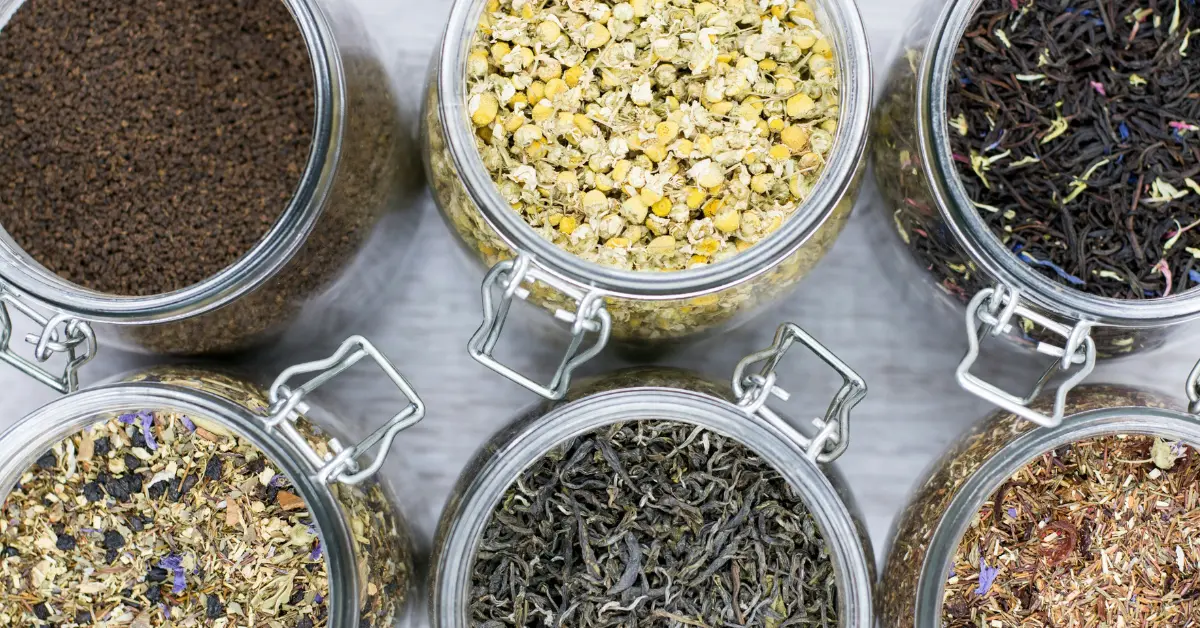
- The Power of Antioxidants
Tea, especially green tea, is a treasure trove of powerful antioxidants. These antioxidants play a vital role in our bodies by fighting off harmful free radicals. By protecting our cells, they may even help reduce the risk of chronic diseases. One of the special antioxidants found in green tea is EGCG, known for its potential in fighting cancer.
- Promoting Heart Health
Regular tea consumption has been associated with improved heart health. Studies suggest that tea can contribute to lowering bad cholesterol levels and, in turn, reduce the risk of heart disease. Making tea a part of your daily routine can be a great way to take care of your heart.
- Assisting in Weight Management
If you’re on a weight management journey, green tea could be your ally. It has been linked to a boost in metabolism and fat burning. The combination of caffeine and catechins in green tea may help you in your efforts to manage your weight effectively.
- Calm and Focus with Tea
Beyond its physical benefits, tea can also have a positive impact on your mental state. Tea contains L-theanine, an amino acid that promotes relaxation and mental focus. Unlike caffeine which can make you jittery, L-theanine provides a soothing effect without causing drowsiness. Enjoy a cup of tea to unwind and improve your focus.
Coffee: The Energizing Brew
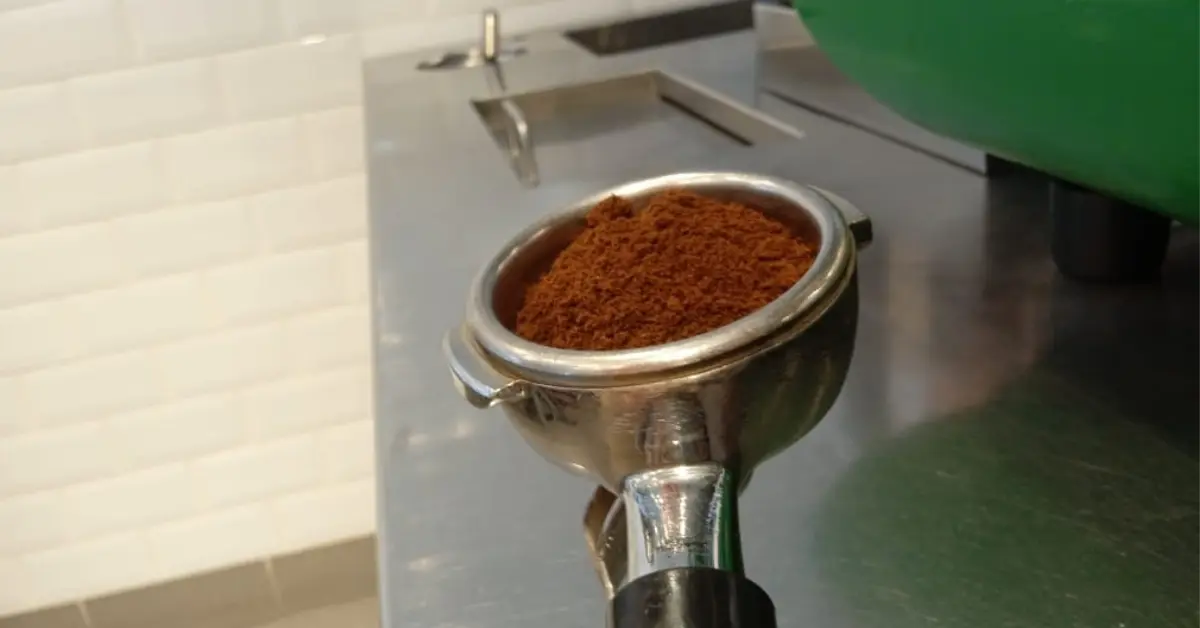
- Boosting Mental Alertness
Coffee, with its main ingredient caffeine, is famous for its ability to boost mental alertness and concentration. When you need a quick pick-me-up in the morning or a focus boost during the day, a cup of coffee can provide that much-needed energy.
- Uplifting Mood
Not just a wake-up call for the brain, coffee is also associated with improving mood and reducing the risk of depression. The caffeine in coffee stimulates the release of dopamine and serotonin, the neurotransmitters responsible for making us feel happy and content.
- Protecting the Brain
Surprisingly, coffee might also play a role in protecting our brain health. Studies suggest that moderate coffee consumption may lower the risk of neurodegenerative diseases like Alzheimer’s and Parkinson’s. It’s thought that the neuroprotective compounds in coffee contribute to this potential benefit.
- Boosting Physical Performance
Need an extra push for your physical activities? Coffee can come to the rescue! By stimulating the release of adrenaline, it prepares your body for intense physical performance, making it a valuable companion for athletes and active individuals.
What else is there to know?
Here we’ll explore the world of coffee and tea, discovering their unique flavors, aromas, and effects. We’ll learn about the differences between the two and why they are loved in different parts of the world. You can get a clear idea of why is coffee better than tea from this discussion. Get ready to enjoy the journey as we uncover what makes each of these drinks truly special!
Types:
Coffee:
Coffee comes from the roasted seeds, also known as “beans,” of the Coffea plant. There are different types of coffee based on the beans and how it’s made. Some popular ones are
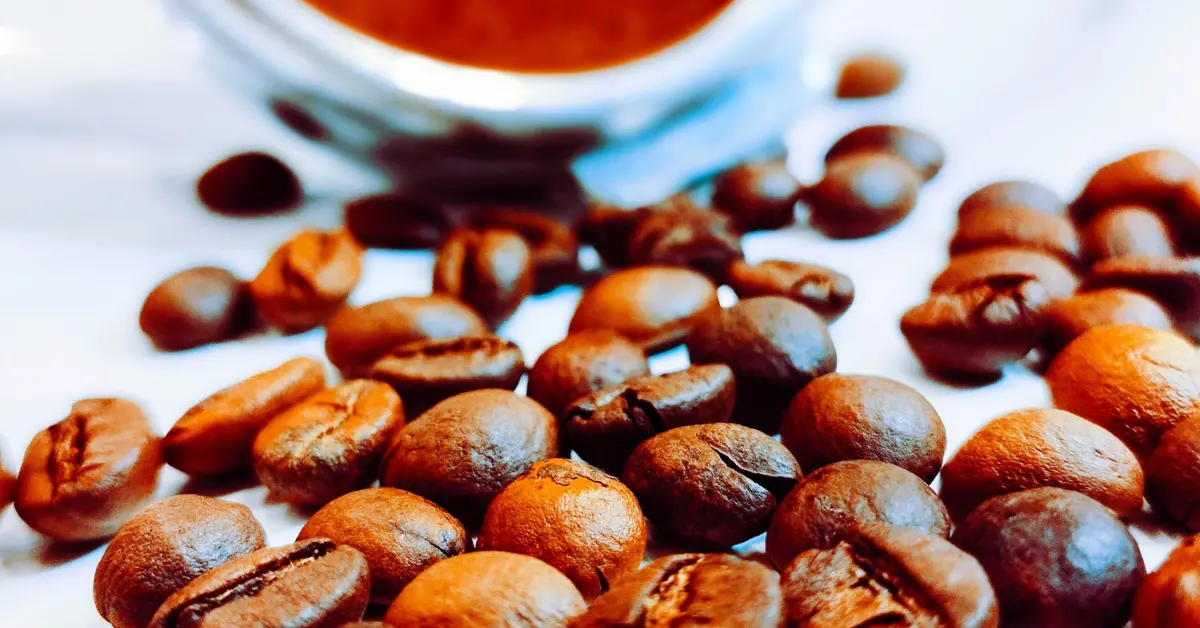
Arabica: These beans are known for their high quality and mild flavour. They make up around 60-70% of the world’s coffee production.
Robusta: Robusta beans are stronger and more bitter because they have more caffeine. They are commonly used in espresso blends and instant coffee.
Espresso: This concentrated coffee is made by forcing hot water through finely-ground coffee beans under high pressure. It’s the base for drinks like cappuccinos and lattes.
Tea:
Tea is made from the leaves of the Camellia sinensis plant, and its types depend on how it’s processed and where it comes from. Here are the main types:
Green Tea: It has minimal oxidation, keeping its natural green color and a fresh, grassy taste. It’s popular in countries like China and Japan.
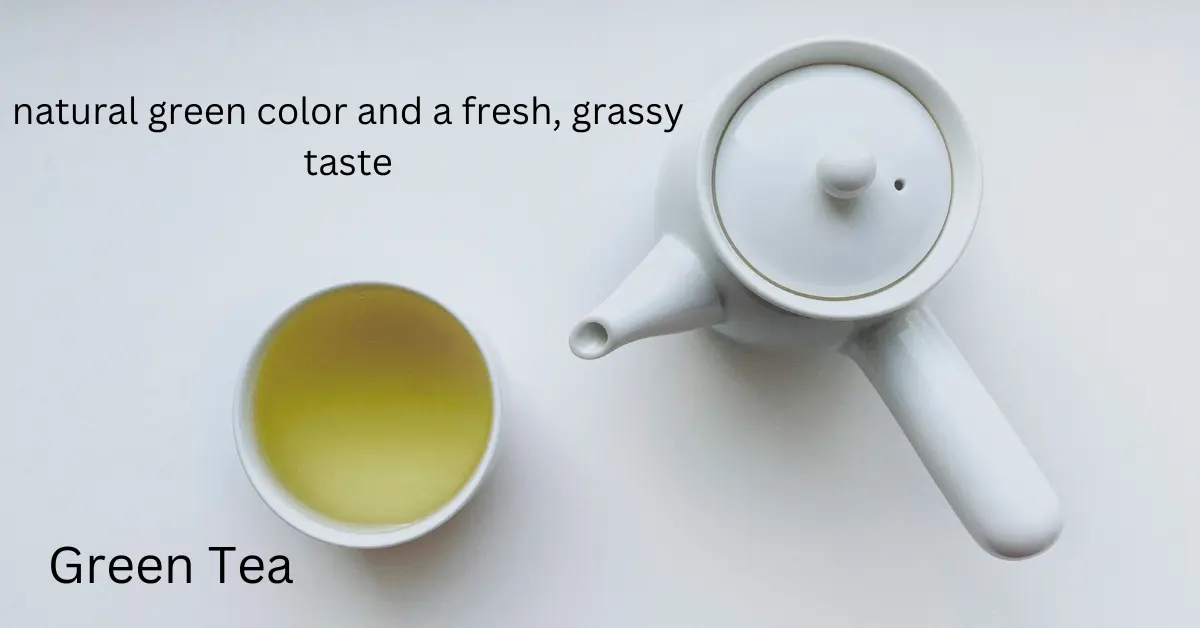
Black Tea: Fully oxidized, black tea has a strong flavor and darker color. It’s the most widely consumed type globally and is common in places like India, Sri Lanka, and Africa.
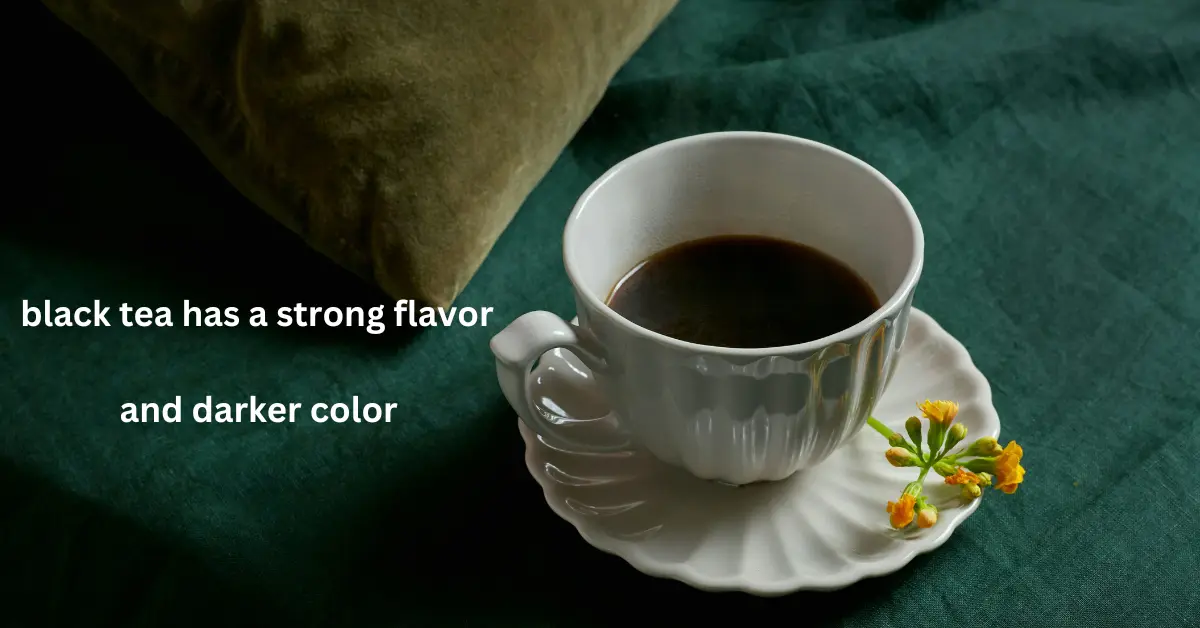
Oolong Tea: This type is partially oxidized, falling between green and black tea in terms of flavour and color. It’s popular in Chinese and Taiwanese cultures.
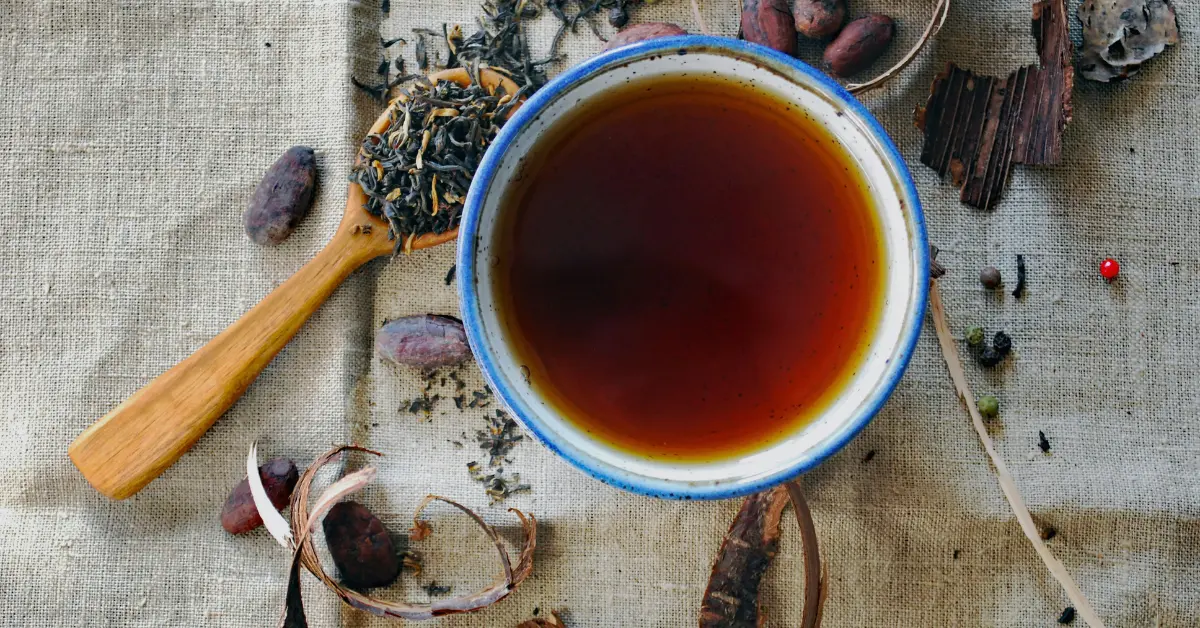
White Tea: The least processed type, white tea has a delicate, subtle flavor, and its leaves undergo minimal oxidation. People cherish it for its natural sweetness.
Flavorings:
Coffee:
The world of coffee boasts a wide range of flavourings, both natural and artificial. Some popular coffee flavorings include
Vanilla: Adding a sweet and smooth note to coffee, vanilla is a beloved flavoring option.
Caramel: Caramel-infused coffee offers a rich, buttery taste that complements the bitterness of coffee.
Hazelnut: Hazelnut-flavored coffee provides a nutty and aromatic twist to the traditional brew.
Tea:
Tea is incredibly versatile and can be flavored in many ways to suit different tastes. Here are some common tea flavorings:
Fruit Infusions: Fruits like berries, apples, and citrus are added to give the tea a fruity and refreshing taste.
Floral Additions: Flowers like jasmine, rose, and chamomile add floral and aromatic notes to tea.
Spices: Chai tea is a popular blend of black tea with spices like cinnamon, cardamom, and ginger.
Additives:
Coffee:
Coffee is often customized with various additives to make it taste just the way you like. Here are some common coffee additives:
Milk and Cream: Adding milk or cream creates a creamy and mellow coffee, reducing bitterness.
Sugar or Sweeteners: Sugar, honey, or syrups are used to add sweetness and balance out the bitterness.
Whipped Cream: This luxurious addition tops specialty coffee drinks like lattes and mochas.
Tea:
Like coffee, tea can also be enjoyed with various additives, though it’s more common to add them to black or green teas. Popular tea additives include:
Milk: In some cultures, milk is added to black tea, creating “tea with milk” or “chai tea.”
Lemon: Black tea with lemon slices or juice has a tangy and refreshing twist.
Honey: Honey acts as a natural sweetener and gives tea a distinct flavor.
Popular Regions:
Coffee:
Coffee is loved all over the world, and different regions have their own unique coffee-growing and brewing traditions. Here are some famous coffee regions:
Latin America: Countries like Brazil, Colombia, and Costa Rica are known for their high-quality Arabica beans.
Ethiopia: The birthplace of coffee, Ethiopia has a rich coffee culture and a variety of coffee types.
Italy: Italy is famous for its espresso-based drinks and sophisticated coffee culture.
Tea:
Tea holds special cultural significance in various regions, and certain types of tea are closely associated with specific countries. Some notable tea regions include:
China: China is famous for its diverse tea production, including green, black, oolong, and white teas.
India: India is a significant tea producer, especially known for its strong black teas from regions like Assam and Darjeeling.
Japan: Renowned for its exquisite green teas like matcha and sencha, Japan has a deep-rooted tea culture.
Conclusion
Both coffee and tea offer a wide range of delightful flavors for everyone to enjoy. Now you know why is coffee better than tea. Coffee comes from roasted beans and has different types, while tea comes from leaves and also has various kinds with unique tastes.
You can add different flavors like vanilla or fruit to coffee, and fruits or spices to tea. Some popular places known for their coffee are Latin America and Ethiopia, while China and Japan are famous for their tea.
Whether you love the boldness of coffee or the soothing qualities of tea, both beverages have a special place in our hearts. They bring comfort and joy to our daily routines, making our moments more special.
So, take a moment to enjoy your favourite drink, knowing that you’re partaking in a rich tradition that connects people around the world. Embrace the differences and savor each sip, because it’s the simple pleasures that make life more enjoyable. Cheers to the wonderful world of coffee and tea!

I am Mojoon, a certified and award-winning barista by choice, with 7 years of experience in the field. I have served and trained coffee shop baristas worldwide. I worked at Krispy Kreme for an extended period, and now I aim to help regular people brew coffee like me. I pursue this job with my passion for writing and also provide one-on-one coaching for newly minted baristas.